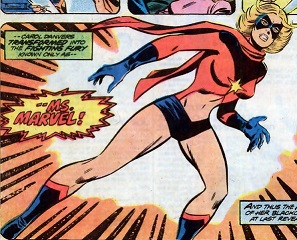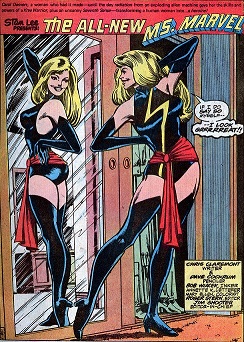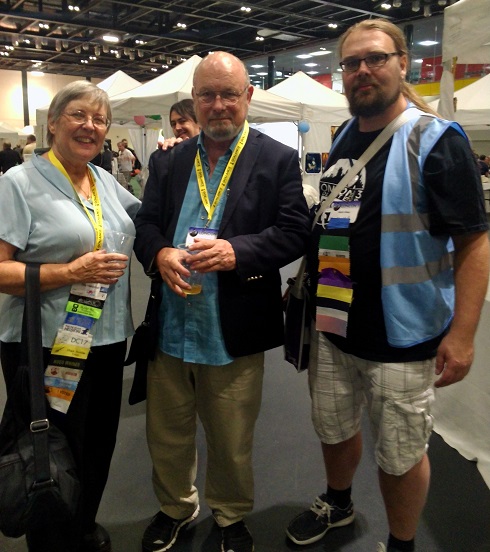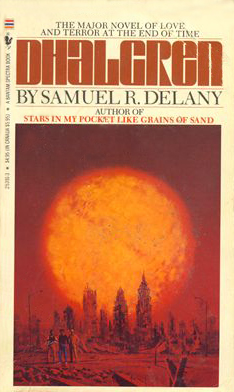I’ve always had a fondness for Ms Marvel/Carol Danvers, one of those also ran characters you encounter as a kid and feel kindly towards. She was of course a distaff spinoff of Marvel’s first Captain Marvel character, from the same time as Spider-Woman and She-Hulk, created to defend a trademark. Her first series was so-so, though Chris Claremont did his best to make something from it, in its later issues linking it indirectly to his X-Men and Iron Fist series, to little avail. She also had a brief stint in the Avengers, leading to the infamous mindrape in issue 200, later resolved by Claremont in Avengers Annual 10. After that she’s taken to the X-Men as a supporting character, Claremont always loyal to his characters…
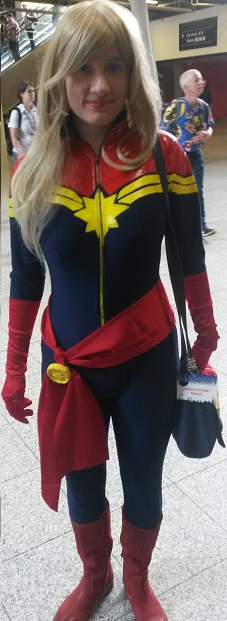
Her costume during most of her run was godawful, as you can see from the first picture, a bad knockoff of Mar-vell’s one with added skin. Why the exposed stomach and legs? God knows. Over time they at least closed up the stomach gap, but it remained a dull costume. When Dave Cockrum came aboard for a few issues late in her run, the first thing he did was change it for a much better one, though as you can see there was still the focus on t&a, but at least Cockrum was a good enough artist to use a mirror rather than have her be one of those broken spine girls to show off both. I always liked this costume, even if, yes, it was designed to tittilate. It’s such a seventies Cockrum design what with the mid riff shawl and all that. Cockrum would be back to design Carol’s next costume, Binary in Uncanny X-Men #164
That’s how things stood for Ms Marvel for a while, until she got brought back in the late nineties as part of Busiek’s Avengers and took the name Warbird, then inevitably went back to her old codename and costume. Busiek also gave her alcoholism, which I hated at the time, yet again crippling what could’ve been the strongest person on the team; Ms Marvel just couldn’t get a break. That is until she got a new, longer lasting series as sort of a Marvel counterpart to Wonder Woman or Power Girl in the early noughties, Bendis nostalgia driven New Avengers series finally accomplishing something worthwhile. Not long ago she got yet another relaunch as the new Captain Marvel, severely pissing off Monica Rambeau once again. With that came a new, more respectable costume that I never liked until I saw it on a Ms Marvel cosplayer at LonCon. For once there’s a superhero costume that actually looks better in real life than in the comics. Suddenly the various elements came together in a way they didn’t on the page and looked good. A good cosplayer can of course make any costume work, no matter how ridiculous, but many female costumes do look a bit …uncomfortable? This didn’t.
